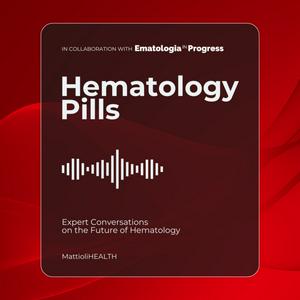Transplant as Immunotherapy: The PTCy Revolution, GVHD Control, and the New Era of Allogeneic SCT – A Dialogue Between Prof. Robin Foà and Dr. Filippo Milano
In this episode, we delve into the transformative changes in allogeneic stem cell transplantation (SCT), a treatment once seen as a last resort for patients but now experiencing a renaissance. Despite the rise of therapies like immunotherapy and CAR-T cells, SCT continues to evolve and remains crucial, particularly with recent breakthroughs. A key focus of the discussion is the introduction of post-transplant cyclophosphamide (PTCy), a groundbreaking advancement in SCT that significantly reduces the incidence of graft-versus-host disease (GVHD), a major complication. PTCy has shown extremely low rates of both acute and chronic GVHD in randomized clinical trials, a major shift from traditional immunosuppressive therapies. While concerns were raised about the potential for increased relapse due to the elimination of reactive T-cells, studies have shown no evidence of an increased relapse risk, making PTCy a game changer.The use of PTCy has also expanded the donor pool, enabling the use of alternative donors such as mismatched relatives and haploidentical donors, which was unthinkable just five years ago. This expansion addresses the global challenge of finding compatible donors, especially for patients from underrepresented ethnic backgrounds or regions with poorly organized donor registries. Additionally, SCT is now being reconsidered as a first-line treatment for several hematologic conditions, thanks to reduced toxicity and the possibility of minimizing pre-transplant chemotherapy. This has also made SCT an option for patients over 75, although careful cardiological evaluation is essential due to potential heart risks associated with cyclophosphamide.Despite the rise of novel therapies, SCT remains a cornerstone in the treatment of acute myeloid leukemia (AML) and myelodysplastic syndromes (MDS), particularly for older patients. With advancements in post-transplant care and a better understanding of the microbiome’s influence, SCT will continue to play a pivotal role in treating these diseases. Listen to learn more about how SCT is evolving, maintaining its relevance, and offering hope to patients worldwide.


